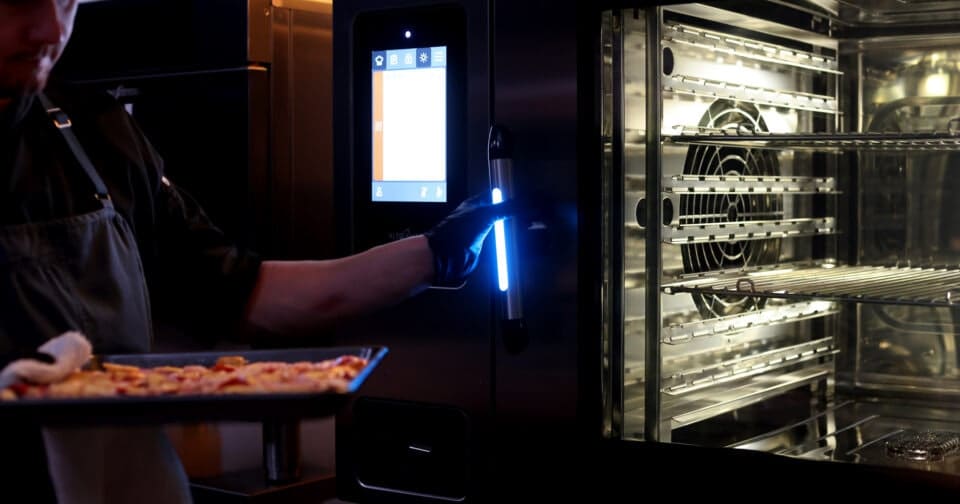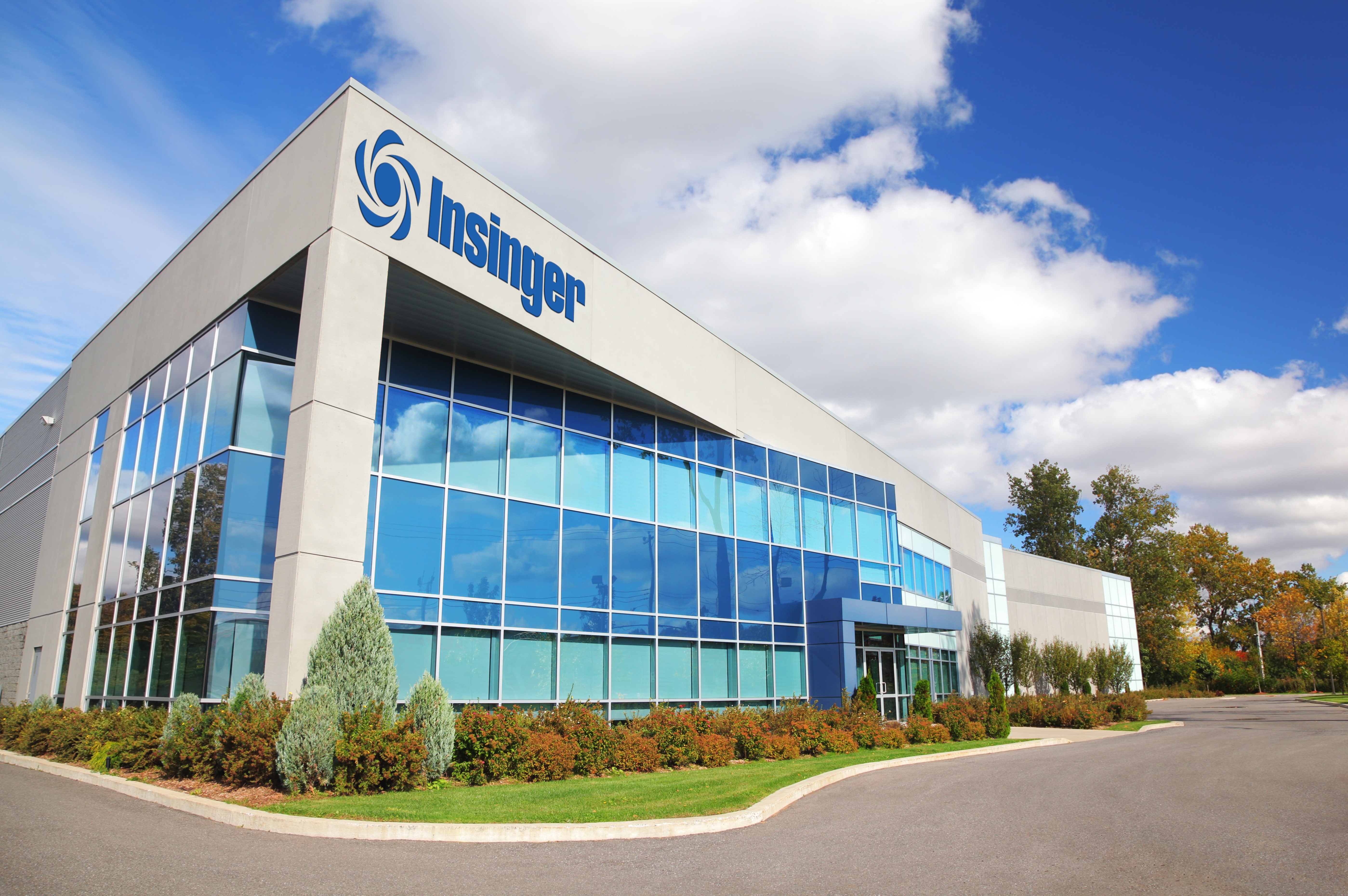
This industry has seen countless mergers and acquisitions over the past several years, causing manufacturers, dealers and even consulting firms to grow larger and expand by the day. Insinger Machine Co., however, has a different story to tell.
“We are one of the last-standing, family owned businesses in the foodservice equipment manufacturing industry, if not the last one,” says Ari Cantor, president of the Philadelphia-based company and the fifth-generation owner-operator.
Steeped in rich history, Insinger is highly-regarded for its warewashing and custom sheet metal fabrication capabilities, dating back to the late 1800s when Cantor’s great, great grandfather, Emil Levene, acquired the company from the Insinger family. However, for military veterans lucky enough to have enjoyed a “tour of duty” in scullery operations, they will likely know Insinger for its biggest and longest standing customer for the past ninety years: the US Department of Defense.
This year, Insinger celebrates its 127th year of continuous operation. A one-stop-shop for warewashing needs, Insinger offers a complete range of warewashing and related products: from undercounter to flight-type dishwashers, pulping systems, tray conveyors and accumulators, automated handwashing systems, pot and pan washers, powered sinks and more.
Looking back
Although Insinger has received previous offers to go public or merge with other companies, “there are many benefits to staying independent,” Cantor says. For one, it has allowed the multi-milliondollar company to operate like a small business, with the ability to stay nimble and constantly innovate, including a pivot during the novel Covid-19 pandemic to produce two new products for stepped-up sanitisation (more on that in a bit).
But first, a history lesson.
“Our goal as a company has always been to work with the US Navy and grow alongside it, but over the years a number of restaurant chains came to Insinger in search of products and we have grown and evolved our product line with them as well.” says Cantor.
In 1893, Insinger invented one of the first commercial dishwashers, which was essentially a giant cast iron bathtub with one side for washing and the other for rinsing. It featured a mechanical wooden basket for lowering and raising ware out of the tanks and maintained heat with the help of two open burner rings below. This semi-automated solution was deemed revolutionary in its day.
On Christmas Eve in 1935, Insinger patented the first modular stainless steel warewasher. The machine could be disassembled in sections for installation or removal. “This product was developed because the military was looking to reduce the removal of hatches and passageways on US Navy ships just to get foodservice equipment on board,” says Cantor.
The company was also called upon during outbreaks of yellow fever and polio because of its sanitising capabilities. Foodservice operations at hospitals, schools, and hotels would sanitise dirty dishes in a large tank with boiling hot water. “We’re literally coming full circle now with the raging Covid-19 pandemic. Warewashing is a necessary evil in foodservice, and especially now, so fortunately we haven’t missed a beat lately.” says Cantor. “Given our military background, we believe in duty, honor, country, customer and nothing is more important at this moment in time.”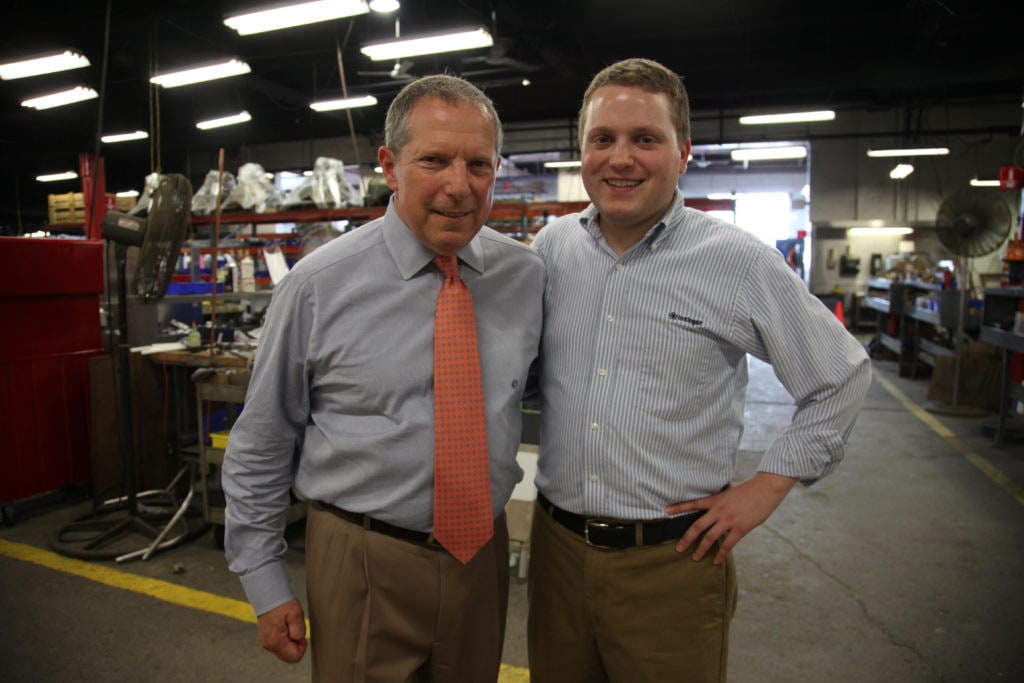
At just 37 years of age, Cantor (Pictured with his father, Robert Cantor, chairman) could be considered quite young, not only for this industry but also for holding such a high-level leadership position. However, he is no spring chicken in business or even in warewashing and foodservice. After earning his Bachelor of Science in business administration, management and operations from Cornell University, Cantor worked on Wall Street in investment banking and trading for Goldman Sachs and other banks before heading back home during the recession of 2008 and 2009.
He joined Insinger in 2009 and has been with the company for 11 years, starting off as a bills of material specialist and working as technical services manager, vice president of sales and chief operating officer before being promoted to president in 2014. He has been a shareholder of the company since 2012 and now is the sole shareholder, having acquired the company over time from his father, Robert Cantor, the fourth generation of owner-operator who now serves as company chairman. Cantor’s performance is overseen by Insinger’s executive advisory committee, which includes industry and non-industry professionals.
The same year Cantor joined his family business, a fire broke out at a neighbouring warehouse after a night security officer accidentally left a lit cigarette unattended. “That turned into a fire that you could see from Interstate 95; the whole block went up in flames and we lost half our facility,” says Cantor.
It took a year and a half to rebuild, but the company maintained momentum and employees continued to work in rented trailers in the parking lot and running fabrication with the help of industrial diesel generators. “The show must go on, so that’s what we did,” Cantor adds. Insinger repaired the existing facility following the fire and Cantor says there are plans for a major renovation and a new campus, hopefully in the near future, in order to expand engineering and manufacturing capabilities.
The team
Going beyond Insinger’s long-time emphasis on service and relationships, Cantor hopes to build on the company’s ability to innovate. “Innovation is at the heart of everything we do, from our first product in 1893, through today.” he says. “We were the first American warewashing manufacturer to offer a ventless door type dishwasher and later offer a ventless rack conveyor dishwasher, and we produced some of the first undercounter dishwashers in America. We patented the first stainless steel dishwasher in 1935. Now, especially in the wake of Covid-19, we are all about innovation to enhance our manufacturing operations. We recently invested in new punch and laser cutting machines, new press brakes, new welding technologies, new finishing systems and other fabrication systems that are more automated and can talk to each other.”
Cantor points to his newly developed team of veteran warewashing engineers as his ticket to faster and better innovation in the short-term and long-term future. That includes Mark Ferguson and James Calhoun, two long-time warewashing engineers and designers who spent years at Jackson Warewashing Systems in Kentucky.
A little over two years ago, Ferguson moved his family from Kentucky to Philadelphia to take the job of his dreams as director of engineering at Insinger with the freedom and flexibility to lead and execute new design projects. Ferguson, who alone holds about 10 patents for his work, has worked in commercial dishwashing for 31 years, having worked at Jackson WWS as a drafter out of college, becoming a project engineer and serving eight years as the company’s research and development director. Prior to joining Insinger, he spent the last 12 years with Meiko and some time with Ecolab. Throughout his career, he has designed all types of dishwashers, from undercounter units to large-scale, flight-type pieces.
Calhoun joined Insinger as chief engineer a little over two years ago after John Stern, a former president of Insinger, recommended him to Cantor. He would have taken Ferguson’s job as director of engineering, but wanted less of a management role.
At the time he was contacted, he had retired and was working on his farm (that he still maintains) in Covine, Kentucky, where he’d lived his entire life, but found himself wanting to go back to designing. He and Ferguson work closely with Cantor as a true team, meeting often, even outside of work over dinner, to discuss ideas. This “flat hierarchy” as Cantor refers to it, helps them focus on constantly innovating without the impediments of bureaucracy.
“Mark and I have equal roles within the company and we strive to be innovative and lead the industry.” says Calhoun, a United States Navy veteran and former submariner who completed the Navy’s rigorous Naval Nuclear Propulsion Program and spent most of his career with Jackson WWS. “We want to get to the point where everyone is copying our designs, rather than the other way around.” Both Calhoun and Ferguson admit their experience with publicly traded companies did not allow this freedom to act quickly and nimbly for cost and other reasons. “It’s also nice to work for a company where everyone is treated like part of the family.” Calhoun adds.
Cantor reiterates this “opendoor policy” at the company. “Our management is structured as a flat hierarchy, he says. “We all share ideas and work together, and personally, it’s important that all our employees feel like we have an inclusive culture. They are stakeholders in our success.”
The CX20 in 60 seconds
Most recently, prior to the pandemic, Ferguson and Calhoun were hard at work developing the industry’s first 60-second ventless door type dishwasher, the CX20 (pictured). The product was unveiled at the NAFEM exhibition in February 2019 and is in full production today.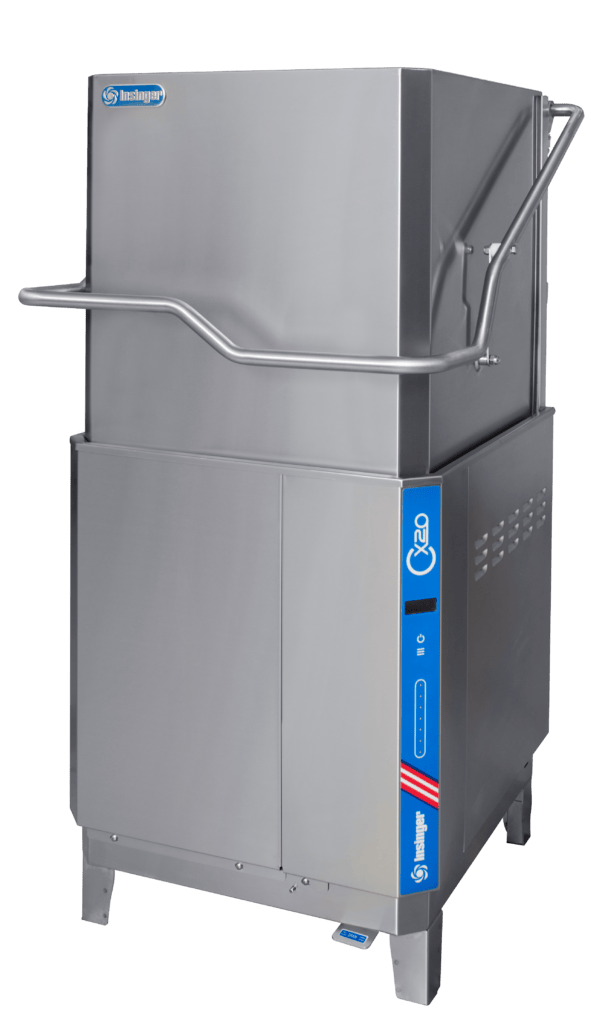
The main challenge in designing the piece, Ferguson says, was to combine the popularity of ventless technology with the power of a traditional unit. “Normally, ventless machines take a long time to operate – the typical non-ventless door type machine takes about 60 seconds, or even as little as 45-50 seconds to achieve a capacity of 70 racks per hour, but ventless units take much longer than that.” says Ferguson. “We focused on making a ventless machine capable of maintaining that 60-second cycle.”
When dishwashers take longer to operate (usually energy-saving models) they cut throughput by 45%, thereby requiring staff to work longer hours, thereby causing an increase in labour costs. Ferguson is also keen to point out that the CX20, which meets and exceeds EnergyStar 2.0, also lowers energy cost due to its speed and differentiated design.
Another efficiency aspect of the CX20 is its built-in booster tank, which saves energy and time overall. “Typically, energy is measured by testing the booster separate from and in addition to the dish machine, but our system is tested on its own and it still uses less energy than other dish machines without a booster heater.” Ferguson says. The natural insulation provided by incorporating the booster inside the hot water tank means the operator doesn’t have to buy a separate dedicated booster heater to maintain the hot water temperature.
“We didn’t stop at that, we went way overboard,” says Ferguson of the design, which is aesthetically pleasing, thanks to its clean, smooth joints and panels and full stainless-steel construction.
“We also used actuator gas springs instead of mechanical springs, which are notorious for breaking and can cause injury and be extremely difficult to replace.” he says.
The team also designed a completely enclosed, waterproof, swing-out electronic control board. “In my experience most control boards can go bad, especially in humidity and heat, but you can literally dunk this new control board in water and it still works.”
Other standard features include a quad-arm wash system, eco drain overflow system, a foot-operated drain pedal, an ergo-grip door handle which provides multiple hand grip positions and allows clearance for corner installations, a vertically-mounted pump motor, a hinged dishrack support, the RackAware dishrack sensing system, a single point electrical connection, a door safety switch, multiple cycle options, low-water protection, a de-lime programme, a linear motion easy-glide door and detergent connection provisions – all standard features on the CX20 product.
As Calhoun noted, Ferguson expects, even wants, competitors to try to copy their CX20 project. “We always hold back something to continue to take the market a step further and knowing you can do better if other people try to copy you.” says Ferguson. “If they do, we know we’re successful,” he adds, “but it’s best to always have other ideas in your back pocket.”
Quick pivots
Insinger’s long history with sanitation – even during previous pandemics – has not changed in the wake of Covid-19. Even the USNS Comfort and Mercy – US Navy hospital ships that travelled to the east coast to help New York, New Jersey and other hard-hit areas to provide additional medical resources – are customers.
It is no surprise that Cantor and his team were quick to not only want to build products for the industry, but could, given its fabrication capabilities. This is not at all unlike many companies that pivoted to provide supply chain equipment during the second World War.
Insinger began their Covid-19 support efforts by fabricating a stainless steel and aluminum sanitising chamber for another company looking to offer a product that could sanitise N-95 masks used by hospital workers so they could safely be reused. The company bought the empty chamber from Insinger and added UV-C lights inside the chamber to kill off the virus without destroying the masks.
The second product Insinger has produced during the pandemic is called Outpost. It’s a completely enclosed, commercial grade, stainless steel hand sanitiser dispenser system that holds any one-gallon container of hand sanitiser. The product is dispensed using a foot pedal, making it completely touchless for maximum hygiene.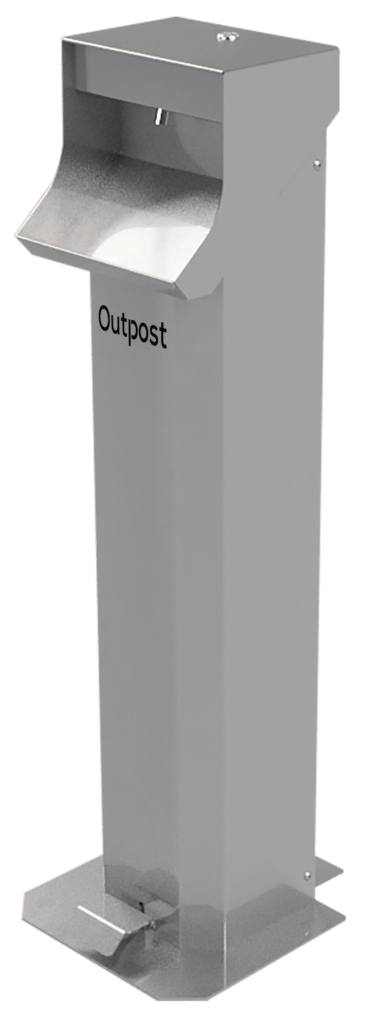
“It took us five weeks to design and bring that product to market.” says Ferguson. The Insinger Outpost (pictured) includes a keyed lock to prevent theft or tampering, and sanitiser can be bought through Insinger or through another provider. After just a few weeks on the market, Insinger had sold about 30 of the Outposts with an order for 44 from a restaurant chain. It has pending orders for nearly 275.
Insinger most recently partnered with Meritech to produce CleanTech, an automated hand hygiene system. CleanTech operates by sensing a person’s hands when placed inside two wells and circulating and spraying sanitised water to kill nearly 99% of pathogens and germs in just 12 seconds. The unit also features a closed-loop drainage system with zero contact points. It is even available with an optional footwear sanitising system – the operator simply steps onto the platform in front of the hand washing basins. Insinger claims the product uses 75% less water than traditional hand washing in a sink.
The future
Cantor says any plans for expansion (including the renovation) are carefully thought out. “I drive a modest car and wear a cheap watch; my mentor at Goldman Sachs once told me that problems arise when you take unnecessary risks in business, forget who you are and place profit over customer interest,” he says. “I try to stay humble and grounded.”
In the short term, Cantor says the company plans to continue developing and marketing its new line of hand hygiene and handwashing systems in partnership with FDA-approved companies. In the long term Insinger will continue to focus its efforts on its new line of ventless dishwashing systems to help customers conserve energy and labour. Cantor also plans to grow the company’s distribution and partnerships with customers overseas.
“We try to remain servant leaders and ask our customers what they’re looking for; we listen rather than speak.” he says. “Insinger has never bitten off more than it can chew, but demand for products remains strong and that’s also driven by consultants and the FCSI community, and for that we remain profusely thankful for all they have done to support us. Sanitation will be with us forever, and I imagine it will only continue to be a bigger focus in a post-pandemic world.”
Cantor points to four key factors that attribute to Insinger’s competitive edge: 1. a focus on American manufacturing and supporting American labour through vertical integration rather than off-shoring jobs. 2. the continuous modernisation of foodservice operations. 3. Insinger’s military heritage – who Insinger is at its core. 4. cleanliness – Insinger’s goal. “Those are the things we strive for each and every day,” he says.
For Insinger, Covid-19 has been both a blessing and a curse. Like most, the company witnessed the tremendous negative impact it has had on the foodservice industry and associated industries, its personnel and its customers. Conversely, as Cantor notes: “Covid-19 shone a spotlight on the importance of proper hygiene. The global pandemic has transformed warewashing from an after-thought to front and centre in the minds of every single operator – because dishwashers provide the most vital foodservice function: guest safety.”
After all, Cantor says, “Happiness is a clean dish.” In a time of pandemic, that has a resounding ring of truth.
Amelia Levin




